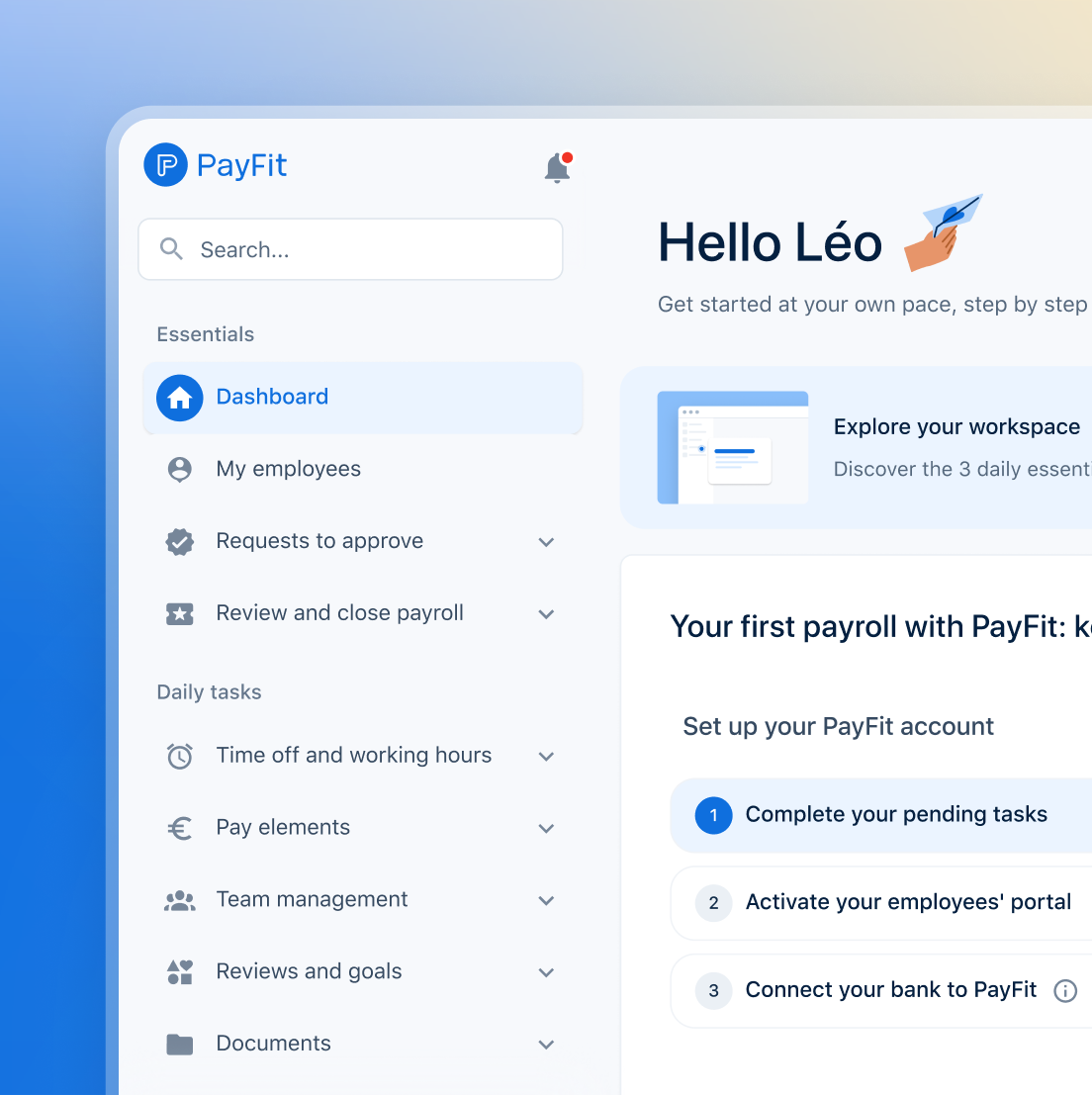✨ Health insurance, now in PayFit - learn more
💷 All the rates & thresholds you need to know for 25/26...right here
✨ The Payroll Journey: Start, Scale & Succeed Globally - learn more
✨ Health insurance, now in PayFit - learn more
💷 All the rates & thresholds you need to know for 25/26...right here
✨ The Payroll Journey: Start, Scale & Succeed Globally - learn more

For business owners and managers of growing UK businesses, understanding accounting is fundamental. Solid financial management is the bedrock of sustainable growth. This brief practical guide will help you understand accounting for a growing business in the UK. We will explore the best accounting practices, the right set-up for your company, and key tax considerations to help you save time and money.
Effective accounting for small and growing UK businesses starts with the fundamentals. The first thing to do is choose the right accounting method. Cash accounting is simple and entails carefully recording income and expenses when money actually moves in or out of your bank account. This method can work well for a very small business in its first year.
As your business grows, however, you will likely need to use accrual accounting for a truer financial picture. This method involves recording income when it is earned and expenses exactly when they are incurred. This provides a better view of your company’s finances over time.
A vital practice for small and growing business owners is to keep business and personal money entirely separate, by opening a dedicated business bank account. This simplifies financial tracking of accounts, and is essential for accurate tax records. It also makes your business look more professional to suppliers, customers, and employees.
Good bookkeeping is the foundation of your entire accounting system. This day-to-day work involves creating accurate records of all your financial transactions, which should be checked over and reconciled at the end of every month. You will need these records to understand your cash flow and manage your finances effectively. This data will help you make the right business decisions at the right moments.
Many people use the terms ‘bookkeeper’ and ‘accountant’ interchangeably, but the services of these professionals are different. A bookkeeper’s work is to record daily transactions and keep your financial records in order. An accountant can help by analysing this data. They provide financial insights to help you plan for the future, manage your tax liabilities, and support your company’s growth.

How do you choose the right accounting set-up? You have several options, and the best choice will depend on the exact needs of your business.
Accounting software: Online accounting software is a popular choice for many growing businesses. Platforms such as PayFit can automate many bookkeeping tasks. We offer real-time financial data, help you track expenses, and manage your payroll. This can save you a significant amount of time.
In-house management: Managing your accounting and payroll in-house gives you complete control over your financial data. This can work well if you have a team member with the right skills. However, this work can be time-consuming and there is a risk of errors if not handled by an adequately qualified and experienced accounting professional.
Outsourcing services: Many growing businesses use an accountant for their bookkeeping and payroll services. This frees up time so you and your staff can focus on your core business. However, accountant fees for a growing business can be a significant expense. It is important to weigh the costs of outsourcing payroll against the benefits.
Also, when considering outsourcing, it’s important to assess the risks of outsourcing vs. investing in tech. While outsourcing can provide expert help, it can also lead to less control over and understanding of your data. A hybrid approach, using powerful payroll software with expert support when you need it, can offer the best of both worlds. This is a key consideration when deciding between payroll in-house vs. outsourcing.
If you decide to hire professional help, you need to find the right individual or entity. Look for accountants with real experience in your specific industry. They should be familiar with the latest online software and UK tax regulations. Finding the right support is key. Ask about the price of their monthly services and what is included, such as unlimited phone and e-mail support (as some providers can charge extra for these).
The main risk of using an external accountant is miscommunication. You must ensure you have a clear line of communication and that they precisely understand your business needs. You are still responsible for your company’s finances, so you need to stay involved.
Growing businesses in the UK need to be aware of several tax regulations from HM Revenue and Customs (HMRC), including those regarding:
Corporation Tax: This is a tax on your company’s profits. You need to keep detailed records of all your income and expenses, reviewing them carefully each month to calculate totals correctly at the end of the year.
VAT (Value Added Tax): If your business’s VAT taxable turnover is more than the current threshold, you must register for VAT. You will then need to charge VAT on your services and file regular VAT returns with HMRC.
PAYE (Pay As You Earn): If you have employees, you must operate a PAYE system for your payroll. This involves deducting Income Tax and National Insurance from your employees’ money and making monthly payments to HMRC.
Understanding these tax obligations is essential in order to avoid penalties. The right accountant, accounting consultant and/or accounting software can guide you through the complexities of UK tax law.
In conclusion, effective accounting is not just a legal requirement, it is a powerful tool for growth. By understanding the basics, choosing the right set-up, and managing your money and tax obligations correctly, you will build a strong financial foundation for your business’s future.


The true cost of employee turnover can be hard to define. We take a deep dive into the most costly expenses associated with employee turnover.

PayFit's helps drive radical finance process improvement for small to mid sized businesses up and down the country. Read this piece to find out how.

Read our take on the three business cases that make building the perfect tech stack for your finance team priceless.

Learn all about finance digital transformation and how to shift gears within your finance function from cost-cutting to growth-driving.

Status quo bias - defaulting to legacy tactics even if they are suboptimal - is a dangerous thing for any aspiring finance department. Here's why.

Automation in finance is a hot topic. In this piece, we run through 7 workflows that finance teams should be automating to improve efficiency.

See what's new in PayFit
New features to save you time and give you back control. Watch now to see what's possible